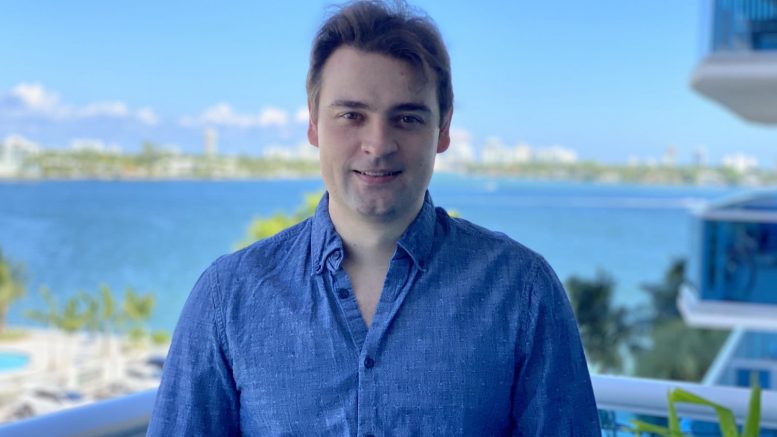Sergey Podlesnykh/Staff Writer
For most of my Russian friends, I am “Sergey from America”. For most of my American ones, I am “Sergey, the Russian”. Eleven years of assimilation has alienated me from Russia, but still hasn’t brought me closer to America. I got stuck in a limbo, an “inbetweener” for life.
In 2009, my excruciating internal conflict of self-identification reached its climax and I found the courage to change what I could. I decided to leave my old Russian life behind and move to the U.S. permanently. My friends and family attempted to talk me out of leaving as they thought I was bound to fail because in the U.S. “I had nothing and would have to start from square one.” I then turned to Bobby Dylan: “When you ain’t got nothing, you got nothing to lose.”
I was brave enough to come to the land of the free, but eleven years later I am still trying to make it my home.
I was brave enough to come to the land of the free, but eleven years later I am still trying to make it my home.
My playlist represents my path: older Russian music I was listening to before my trans-Atlantic relocation and all types of American music representing my short tenure in this country. I celebrate some American and Russian holidays, I laugh at both Russian and American memes and I equally love borscht and burgers. At times I find it challenging to explain my other side to both my Russian and American social circles. I can never tell which side prevails, and often question myself like that zebra: “Am I white with black stripes or black with white stripes?”
Among other dilemmas, the U.S. Army brought up the questions of true affiliation and loyalty. I was once asked, “If we go to war with Russia, which side are you going to shoot?” I countered, asking if they would rather have their left or right eye taken out. Perhaps I never really wanted to choose because I am a combination of both. I might be loyal to the flag of red, white and blue, but the particular pattern remains a secret to me.
With time, I made peace with my accent. Regardless of my American residency and education level, some weird Slavic sounds will always give away my origins. No amount of Coca-Cola, bourbon or Thanksgiving turkey can tweak my tongue and vocal cords. As I start speaking with strangers and words roll off my tongue, I am in essence rolling a die: sometimes my accent benefits me, but at times it betrays me. I realized I couldn’t change it, so I found serenity to accept it.
I am a weird concoction of unbridled Russian passion and rational American utility with a dash of Russian conservatism and American liberalism. I go through phases of seemingly sustainable harmony when I can put both pieces of this puzzle to good use, and painfully frustrating Cold War moments when I can’t make sense out of either one.
I understand that my situation is not unique, and many first and second generation immigrants face similar issues of self-identification and marginalization. The ultimate wisdom I can offer comes from Leo Tolstoy: “Happy families are all alike; every unhappy family is unhappy in its own way.” We might pursue the same endgame of self-satisfaction and self-acceptance, but we all fight our own battles. Sometimes we are tilting at windmills, like Don Quixote, lacking the wisdom to know the difference.
Maybe being an “inbetweener” is not a bad thing. Perhaps, it’s not the most inspiring self-identification, but it’s a self-identification nonetheless. My inner conflicts and challenges have molded me into the person I am today. In fact, my inbetweener status could be the secret source of strength that has pushed me through all these years.
The world needs inbetweeners as well. Hopefully, I will find the serenity to accept that one day.
This article is the third in a series focusing on cultural identity.
DISCLAIMER:
The opinions presented within this page do not represent the views of PantherNOW Editorial Board. These views are separate from editorials and reflect individual perspectives of contributing writers and/or members of the University community.





Be the first to comment on "The Identity Series: Reflections of an “Inbetweener”"